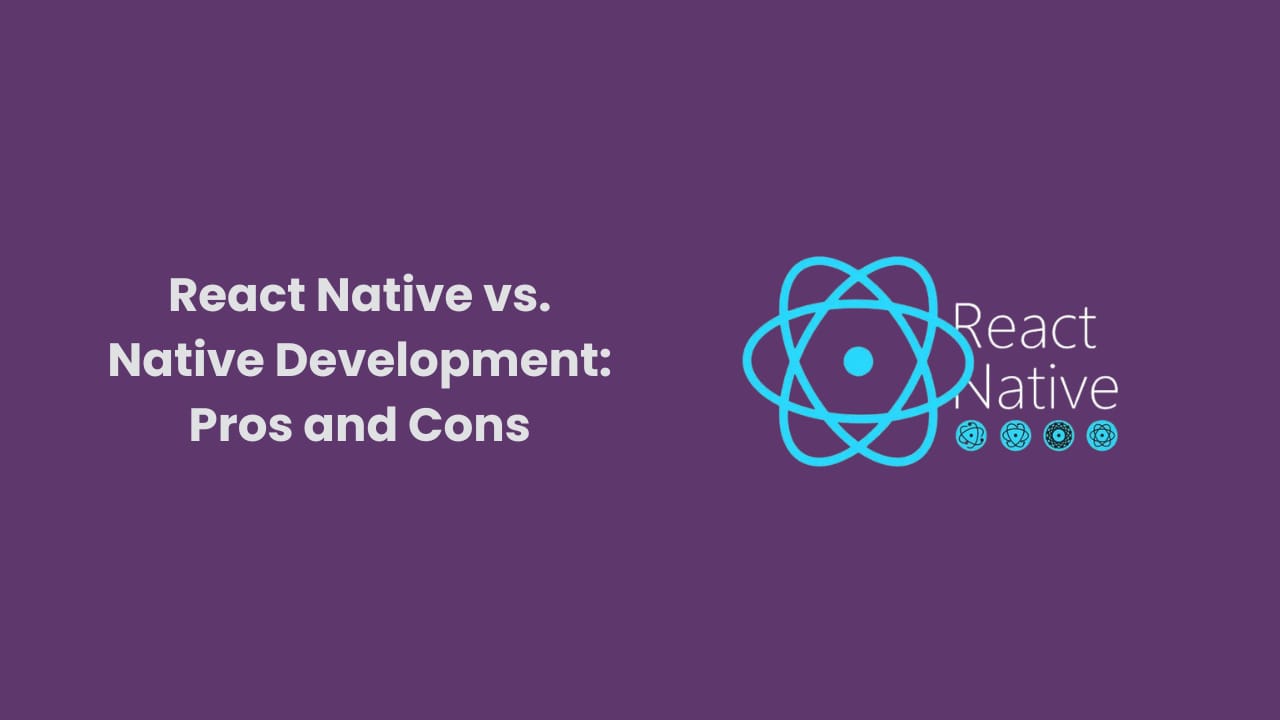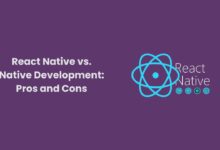The selection between React Native and Native development for mobile apps has become crucial for both developers and enterprises. React Training, a popular resource for honing React skills, has generated a new framework called React Native. However, What is React Native, and how does it compare to more conventional Native app creation? In this blog, we’ll explore the nuances of these two methods, highlighting their benefits and drawbacks so you may choose wisely for your next mobile endeavour.
React Native
Facebook’s React Native has been more popular in recent years. It’s a free and open-source framework for creating mobile apps with the help of JavaScript and the React library. One of its most notable qualities is that it makes cross-platform development easier, allowing code to be written once and then deployed to both iOS and Android. This is especially helpful for urgent projects since it greatly cuts down on development time and effort.
Pros of React Native
- Cross-Platform Compatibility: The key strength of React Native is its ability to run on a wide variety of platforms. Developers may effectively bring programs to a larger audience by sharing a large chunk of code across platforms.
- Cost-Effective Development: Less expensive development times and budgets are common outcomes of using React Native for app creation. Businesses may save both time and money by using a single codebase across various platforms.
- Large Developer Community: React Native has a large developer community since it is supported by Facebook. This implies that you may discover many tools and third-party libraries to help you work faster.
- Hot Reloading: React Native’s “hot reloading” feature is an excellent time-saver for developers since it lets them view their changes in real time as they make them.
Cons of React Native
- Performance Variability: Although React Native provides near-native speed, sophisticated and computationally heavy apps may still experience slowdowns because they must use a bridge between JavaScript and native components.
- Limited Access to Native Features: Some native capabilities and APIs may be difficult to access in React Native, necessitating the use of customised modules or the integration of native code.
- Learning Curve: Those used to native programming may find React Native to have a steeper learning curve than JavaScript developers.
Native Development
Native app development exists on the other end of the spectrum. In this method, you’ll use Swift/Objective-C for iOS and Java/Kotlin for Android to create two entirely distinct codebases. Native programming is the go-to for resource-intensive apps or those with stringent UI/UX requirements since it provides unrivalled control and access to platform-specific capabilities.
Pros of Native Development
- High-Quality UI/UX: Native development makes it simpler to create a seamless user experience that’s optimised for the target platform.
- Full Access to Native APIs: Native developers get complete access to all APIs and features, guaranteeing that no core functionality is hidden from them.
- Dependable Ecosystems: Both the Apple and the Google ecosystems provide developers with a wide range of resources, such as high-quality development tools, libraries, and technical assistance.
- Performance Optimisation: For graphics-intensive games and other high-performance applications, native apps often provide superior performance versus their cross-platform equivalents.
Cons of Native Development
- Limited Code Reusability: The maintenance burden is higher due to the low degree of code reusability across iOS and Android.
- Higher Development Costs: There will be an increase in development expenses due to the need to create and maintain two codebases.
- Development Time: Developing for both iOS and Android at the same time may be expensive and time-consuming.
Choosing Between Native Development and React Native
The choice between React Native or Native development depends on your project demands. For a quick, affordable, cross-platform solution, use React Native. It’s ideal for startups and small businesses who wish to deliver software on several platforms.
Native programming is excellent for high-performance applications or extensive integration with native capabilities. Native development is favoured when a company can maintain two codebases, as many major companies can.
Some situations benefit from a combination approach. React Native can quickly build a Minimum Viable Product (MVP) and add Native code for speed and functionality.
Conclusion
React Native and Native Development are interesting mobile app development solutions. Native development offers unmatched control and performance optimisation, yet React Native is popular because of its cross-platform interoperability and inexpensive cost. The key to selecting the appropriate option is to assess your project’s demands and weigh the pros of each technique. Make an informed decision about React Native or Native development to excel.
You may also read
Tasha K: Unraveling the Controversial Career of an Influential Online Personality








